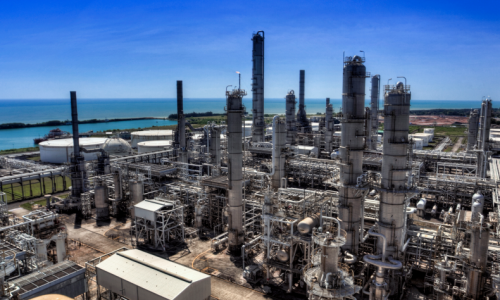LNG transportation company PT GTS International Tbk (GTSI) has been allocating US$ 24 million Capital expenditure (Capex) for its 2023 business expansion due to the constantly increasing demand for liquefied natural gas (LNG) in Indonesia.
GTSI was established in 1986 under the name of PT Humpuss Intermoda Transportasi (PT HIT), which is owned by Hutomo “Tommy” Mandala Putra, the youngest son of former authoritarian Soeharto. The company partnered with Mitsui O.S.K Lines LTD to develop LNG vessels and related services. In 2013, GTSI became a separate entity from the holding group HIT, focusing on LNG operations or its supporting infrastructure with operational potential for domestic and international markets.
Business expansion
The US$ 24 million Capex serves as the basis for the company to purchase an LNG carrier, which cost US$ 10-15 million, and is later converted into a Floating Storage & Regasification Unit (FSRU).
“This large ship will later be used as a transportation carrier from the location of LNG products,” President Director Tammy Meidharma said during a Market Review in IDX Channel on January 30, 2023.
He explained that the FSRU business line was projected to become a gas supplier for power plants as they are in the energy conversion transition period. The company develops the FSRU business line due to the increasing demand for LNG, which is in line with the government’s program of energy conversion.
In the future, all power plants will be converted into renewable energy sources (EBT). In this conversion process, natural gas is needed as a transition medium in energy conversion.
“So we believe that demand in Indonesia will increase in the next two or three years,” Meidharma added.
GTSI Director Dandun Widodo said that the FSRU conversion would cost the company US$ 8-9 million. “The large ship will be utilized at the soonest in the third quarter of 2023,” he said, as quoted by kontan.co.id, on December 22, 2022.
GTSI would also benefit from the government’s policy in developing downstream mineral industry as mining companies are banned from exporting raw minerals.
“Therefore, the gas demand increases, both for smelters and power plants,” Meidharma said, adding that in 2026, GTSI will purchase small size LNG carriers.
Risks in natural gas sector in Indonesia
There are several risks in the natural gas sector that might affect the business of GTSI:
- Price volatility: The price of natural gas is subject to fluctuations and unpredictability due to factors such as global demand and supply, geopolitical tensions, and natural disasters.
- Import dependency: Indonesia heavily relies on imported natural gas to meet its energy needs, which increases the country’s vulnerability to global price fluctuations and supply disruptions.
- Infrastructure constraints: Developing the necessary infrastructure for natural gas production and distribution is a significant challenge in Indonesia, which can affect the development of the sector.









